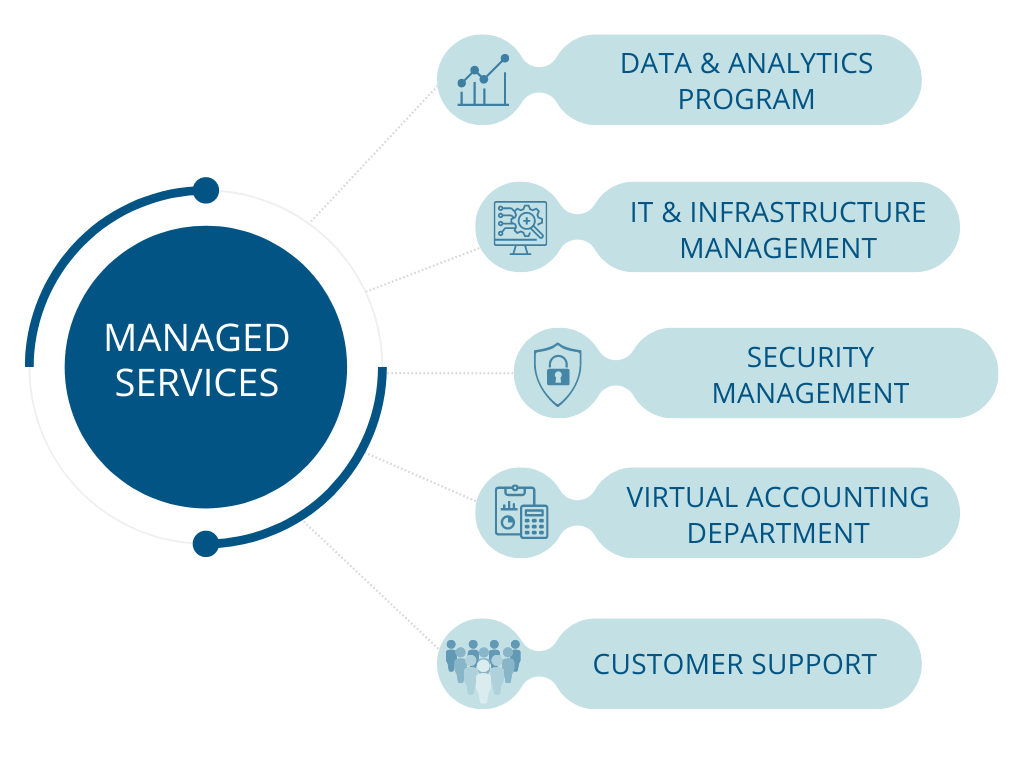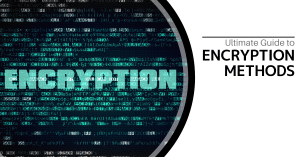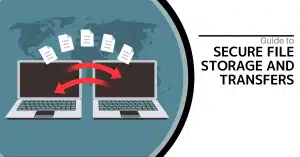IT infrastructure management for accounting firms ensures robust data security, seamless operations, and regulatory compliance. It involves hardware, software, and network management.
Accounting firms rely heavily on efficient IT infrastructure to manage sensitive financial data and streamline operations. Effective IT management includes maintaining secure servers, updating software, and ensuring reliable network connectivity. With cyber threats on the rise, robust security measures are essential to protect client information.
Cloud solutions and data backup systems also play a crucial role in enhancing operational efficiency. A well-managed IT infrastructure helps firms meet regulatory requirements and prevents data breaches. Investing in professional IT services can save time, reduce costs, and improve overall productivity. By prioritizing IT infrastructure, accounting firms can focus on delivering exceptional client services.

Credit: www.cambridgeassociates.com
Importance Of It Infrastructure
The importance of IT infrastructure in accounting firms cannot be overstated. It forms the backbone of their daily operations. A robust infrastructure enhances accuracy and security. It ensures that all systems function seamlessly. This section delves into its critical role and impact on efficiency.
Role In Accounting Firms
IT infrastructure plays a vital role in accounting firms. It supports data management and storage. Every financial transaction and record relies on it. Without a good infrastructure, errors and delays happen. It ensures data is accessible and secure. Accounting firms need reliable networks and servers.
- Data management and storage
- Support for financial transactions
- Ensures data accessibility and security
- Reduces errors and delays
Impact On Efficiency
A strong IT infrastructure boosts efficiency. Employees complete tasks faster with reliable systems. It reduces the time spent on manual data entry. Automation is a key feature. It allows accountants to focus on core tasks. The infrastructure also minimizes downtime.
| Aspect | Impact on Efficiency |
|---|---|
| Automation | Reduces manual entry |
| Reliable Systems | Faster task completion |
| Minimized Downtime | Continuous operations |
- Boosts task completion speed
- Focuses on core tasks
- Minimizes downtime

Credit: www.analytics8.com
Key Components
Effective IT Infrastructure Management is vital for accounting firms. It ensures seamless operations and data security. Let’s explore the key components.
Hardware Essentials
Hardware is the backbone of IT infrastructure. Here are the essentials:
- Servers: Centralize data and applications.
- Computers: Workstations for employees.
- Network Devices: Routers and switches for connectivity.
- Storage Solutions: Secure data storage and backups.
Software Requirements
Software is crucial for managing tasks and data. Essential software includes:
- Accounting Software: Manages financial records.
- CRM Systems: Tracks client interactions.
- Project Management Tools: Organizes tasks and deadlines.
- Security Software: Protects against threats.
Cloud Solutions
Cloud solutions are revolutionizing IT infrastructure management for accounting firms. These solutions offer numerous benefits, enhancing efficiency and security. Let’s explore the advantages of cloud storage and the process of implementing cloud services.
Benefits Of Cloud Storage
Cloud storage provides a secure and accessible place for data.
- Data Security: Cloud providers offer advanced security features.
- Accessibility: Access your data from anywhere, anytime.
- Scalability: Easily scale storage as your firm grows.
- Cost-Efficiency: Reduce costs with pay-as-you-go models.
- Backup and Recovery: Automatic backups ensure data is safe.
Cloud storage also helps accounting firms comply with regulations. Storing data on the cloud ensures it is secure and easily retrievable.
Implementing Cloud Services
Implementing cloud services involves several steps. Follow these to ensure a smooth transition.
- Assessment: Evaluate your current IT infrastructure.
- Planning: Develop a comprehensive cloud migration plan.
- Vendor Selection: Choose a reliable cloud service provider.
- Migration: Transfer data and applications to the cloud.
- Training: Train staff on using cloud-based tools.
- Monitoring: Continuously monitor and optimize cloud performance.
During the migration, maintain open communication with your team. Ensure that everyone understands the benefits and processes involved.
Cloud solutions offer a modern approach to IT infrastructure management. Accounting firms can greatly benefit from these advancements.
Data Security
Data security is crucial for accounting firms. Protecting sensitive client data is paramount. Proper IT infrastructure management ensures data integrity and confidentiality.
Protecting Client Data
Client data must remain secure at all times. Accounting firms handle financial records, personal information, and confidential documents. Unauthorized access can lead to severe consequences.
- Use strong passwords.
- Enable multi-factor authentication.
- Encrypt sensitive information.
- Update software regularly.
Best Practices For Cybersecurity
Implementing best practices for cybersecurity can prevent data breaches. Here are key measures:
| Best Practice | Description |
|---|---|
| Firewalls | Block unauthorized access to your network. |
| Anti-virus software | Detect and remove malicious software. |
| Regular backups | Ensure data can be restored if lost. |
| Security training | Educate staff on recognizing threats. |
| Access control | Limit data access based on roles. |
By adopting these practices, accounting firms enhance their data security. Strong IT management is crucial for safeguarding sensitive information.
Network Management
Efficient network management is crucial for accounting firms. It ensures seamless operations and maintains data integrity. A well-managed network boosts productivity and enhances client satisfaction.
Optimizing Network Performance
Optimizing network performance is vital for smooth operations. Accounting firms handle large volumes of data daily.
- Use high-speed internet connections
- Regularly update network hardware
- Implement Quality of Service (QoS) protocols
- Monitor bandwidth usage
These steps ensure efficient data transfer and reduce downtime. Implementing QoS helps prioritize critical data packets. Bandwidth monitoring prevents network congestion.
Troubleshooting Common Issues
Network issues can disrupt business operations. Quick troubleshooting is essential to minimize downtime.
- Identify the problem source
- Check hardware connections
- Restart network devices
- Update firmware and drivers
- Consult with IT professionals if necessary
Identifying the source of the problem is the first step. Checking hardware connections can often resolve simple issues. Restarting network devices can refresh connections and resolve conflicts.
Updating firmware ensures the latest security patches and performance improvements. Consulting with IT professionals provides expert solutions to complex problems.

Credit: www.zolldata.com
Automation Tools
Automation tools can revolutionize IT infrastructure management for accounting firms. By automating repetitive tasks, firms can save time and reduce errors. This allows teams to focus on high-value activities, improving overall efficiency and productivity.
Streamlining Processes
Automation can streamline many processes in accounting firms. Tasks like data entry, report generation, and client communication can be automated. This reduces the workload and speeds up operations. The result is improved accuracy and faster service delivery.
For example, automating data entry ensures consistency and minimizes human errors. Automated report generation ensures timely and accurate financial reports. Client communication tools can send reminders and updates automatically, enhancing client satisfaction.
Popular Automation Software
Several automation tools are popular in the accounting industry. These tools offer various features that cater to different needs.
| Software | Features |
|---|---|
| QuickBooks | Automates invoicing, payroll, and expense tracking |
| Xero | Streamlines bank reconciliations, invoicing, and financial reporting |
| Sage | Manages accounts, cash flow, and payroll automation |
| Zoho Books | Handles invoicing, expenses, and sales order automation |
These tools help accounting firms automate their daily tasks. This improves efficiency and allows staff to focus on more important work.
- QuickBooks: Ideal for small to medium-sized firms.
- Xero: Perfect for firms needing robust financial reporting.
- Sage: Best for payroll and cash flow management.
- Zoho Books: Great for automating sales orders and expenses.
Choosing the right tool depends on your firm’s specific needs. Start by identifying the tasks you want to automate. Then, select the software that best suits those needs.
Disaster Recovery
Disaster recovery is vital for accounting firms. It ensures business continuity during crises. Disasters can include cyber-attacks, natural events, or hardware failures. Having a strong recovery plan protects sensitive financial data. This section will cover how to create a recovery plan and effective backup solutions.
Creating A Recovery Plan
A recovery plan is essential for accounting firms. It helps restore operations quickly. Here’s how to create one:
- Identify critical systems: Determine which systems are vital for daily operations.
- Set recovery objectives: Define recovery time objectives (RTO) and recovery point objectives (RPO).
- Assign roles: Designate team members responsible for specific tasks.
- Document procedures: Write step-by-step instructions for recovery.
- Test the plan: Conduct regular drills to ensure effectiveness.
Backup Solutions
Effective backup solutions are crucial for data safety. They help recover lost data quickly. Consider these options:
- Cloud backups: Store data in the cloud for easy access and recovery.
- Local backups: Keep copies of data on-site for quick access.
- Hybrid solutions: Combine cloud and local backups for added security.
| Backup Type | Pros | Cons |
|---|---|---|
| Cloud Backups | Accessible, scalable, secure | Dependent on internet, potential cost |
| Local Backups | Quick access, lower cost | Physical damage risk, space limitations |
| Hybrid Solutions | Best of both, flexible | Complex setup, potential cost |
Use these tips to protect your firm’s data. A well-crafted disaster recovery plan ensures business continuity.
Future Trends
The future of IT Infrastructure Management for accounting firms is dynamic. This sector rapidly evolves, driven by new technologies and industry shifts. Understanding future trends helps firms stay competitive.
Emerging Technologies
New technologies are transforming IT infrastructure management. Accounting firms must embrace these innovations.
Artificial Intelligence (AI) is a game-changer. AI automates repetitive tasks, saving time and reducing errors. Machine learning tools provide deeper insights into financial data.
Cloud Computing offers flexibility and scalability. Firms can store vast amounts of data securely and access it from anywhere. This reduces the need for physical servers.
Blockchain technology ensures secure and transparent transactions. It enhances data integrity and reduces the risk of fraud. Blockchain can revolutionize how firms handle audits.
Adapting To Industry Changes
Accounting firms must adapt to industry changes. This ensures they stay relevant and efficient.
Regulatory Compliance is a major concern. Keeping up with changing laws and regulations is crucial. Firms must invest in compliance tools and training for their staff.
Remote Work is the new norm. Firms need robust IT infrastructure to support remote teams. Secure communication tools and VPNs are essential.
Client Expectations are evolving. Clients demand faster and more accurate services. Firms must use advanced analytics and reporting tools to meet these expectations.
Cybersecurity is critical. Cyber threats are increasing. Firms need to invest in strong security measures to protect client data.
| Future Trend | Impact |
|---|---|
| Artificial Intelligence | Automates tasks, reduces errors |
| Cloud Computing | Offers flexibility, reduces physical server needs |
| Blockchain | Ensures secure transactions, enhances data integrity |
| Regulatory Compliance | Requires investment in compliance tools |
| Remote Work | Necessitates robust IT infrastructure |
| Client Expectations | Demand faster and accurate services |
| Cybersecurity | Essential to protect client data |
Frequently Asked Questions
What Is It Infrastructure Management?
IT infrastructure management involves overseeing essential IT components. These include hardware, software, networks, and data storage. It’s crucial for seamless operations.
Why Is It Infrastructure Vital For Accounting Firms?
IT infrastructure ensures data security and operational efficiency. It supports software applications essential for accounting tasks.
How Can It Management Improve Productivity?
Effective IT management reduces downtime. It ensures systems run smoothly, allowing staff to focus on their tasks.
What Are The Key Components Of It Infrastructure?
Key components include servers, networks, storage devices, and software. These elements work together for efficient operations.
Conclusion
Effective IT infrastructure management is crucial for accounting firms. It ensures data security, boosts productivity, and supports compliance. By investing in reliable IT solutions, firms can streamline operations and enhance client satisfaction. Stay ahead in the competitive accounting landscape by prioritizing robust IT infrastructure.
Your firm’s success depends on it.








